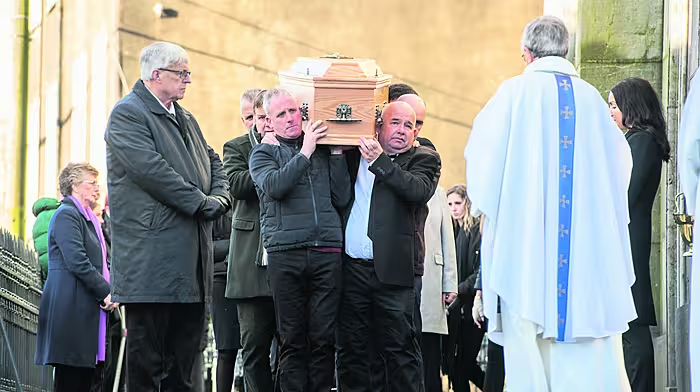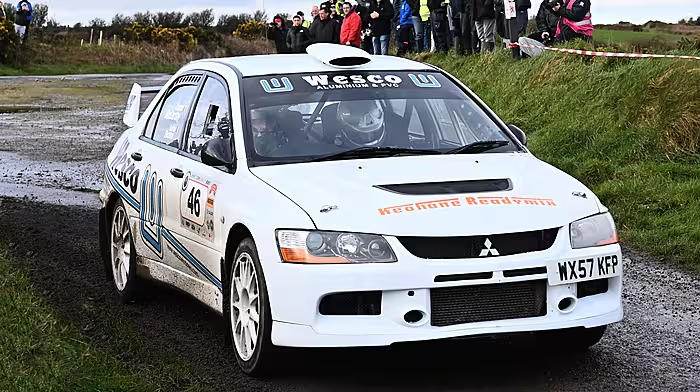RESTRICTIONS introduced to slow the spread of the Covid-19 virus have hugely impacted on the ability of charities to do the usual fundraising that they need to keep their operations going. The first high-profile victim of this was the Irish Cancer Society’s annual Daffodil Day the last Friday of March, which had been one of the organisation’s most lucrative sources of income as hardly any family in the country has escaped the ravages of cancer and there is huge goodwill towards the ICS.
Only last weekend, we saw the effect of the cancellation of the annual Darkness into Light walks held countrywide in aid of the vital services provided by Pieta House to try to prevent suicide and people self-harming, which are needed more than ever in our current situation. They estimated their fundraising would be down by €6.5m this year as a result of the restrictions, however an alternative fundraiser, #DILSunriseAppeal, was held online and Pieta got a nice fillip also from fundraising done on The Late Late Show.
With fundraising said to be some 80% down, leading to estimated overall losses of up to €400m in fundraising forecast for the charity sector, it got a welcome boost last week from a government announcement of a €40m package of supports. This will go some way towards both recognising and assisting the contribution charities make, especially where they are filling in gaps in services the government should be providing.
The aid package is made up of a €35m Covid-19 Stability Fund, which will provide a level of support to qualifying organisations who are most in need and have seen their trading and/or fundraising income drop significantly during the crisis, and a €5m government commitment to a philanthropy fund, which will focus on supporting responses to the Covid-19 crisis that require innovative and adaptive solutions to existing and emerging challenges.
Deirdre Garvey, CEO of The Wheel, the national association of charities, community and voluntary organisations, and social enterprises, has welcomed the government’s assistance for the charity sector, saying that it will provide ‘an essential lifeline’ for it. She said that, during the Covid-19 crisis, demand had significantly increased for the work the charity sector does in communities and within families, but at a time when fundraising had been completely decimated.
Meanwhile, back at the coalface, the Society of St Vincent de Paul (SVP) has launched an urgent fundraising appeal as it expects calls for help to escalate in the coming weeks because many people are struggling financially as a result of losing their jobs or living on reduced income due of the restrictions, with the April unemployment rate jumping to a record high of 28.2%. Last year, SVP helped over 160,000 people and families and had expected that figure to rise by about 10% this year, but now it believes that this figure will be well exceeded as a result of all the new people who find themselves struggling.
SVP is usually at its busiest around Christmas time when much of its fundraising is done, but the Covid-19 restrictions have caused an unprecedented need situation that they could not have foreseen. Responding to it has been hampered by the fact that SVP’s income has been drastically reduced because of the closure of its 234 shops nationwide and the cancellation of church gate and shopping centre collections.
Calls to SVP for help have come from people in precarious or part-time work who have been temporarily laid off and are struggling to pay the bills, even with State support; lone parents socially isolated and who are struggling to pay for gas, electricity and food as a result of school closures; single adults living alone, with health conditions and in receipt of disability payment, worried about isolation and being able to pay the bills; pensioners living alone at home all day and who can’t afford to keep their homes warm, and people who had to give up work to care for vulnerable family members.
SVP has been in existence for 175 years and has supported those in need through the Famine, two World Wars, an uprising, the Civil War cycles of economic austerity and now faces this new pandemic challenge. It has a network of over 11,500 volunteers across the country, but they need funds to provide relief to people in need.
SVP national president Kieran Stafford put it in context when he said that, in over 20 years volunteering with SVP, the past few weeks have been the most difficult he has ever known. One of the few good things that have come out of the restrictions is a renewed sense of community and, hopefully, that will manifest itself in donations to charities like SVP and others striving to continue the good work they do.










